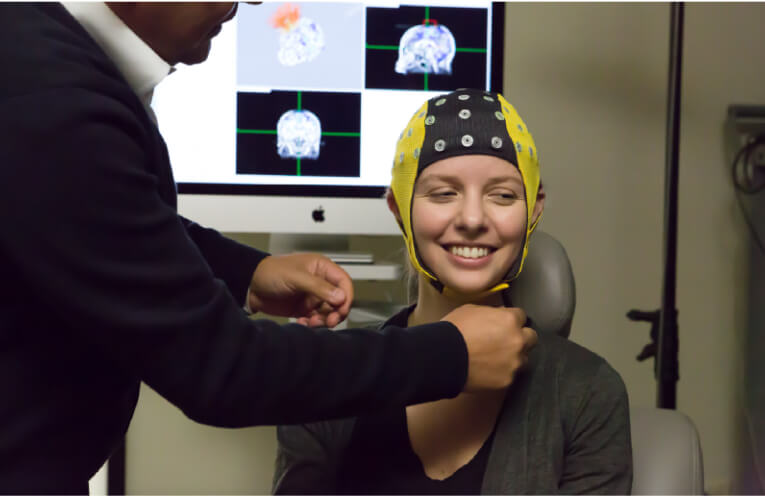RESEARCH

NEUROMOTOR CONTROL & NEUROREHABILITATION
Knowledge about how the brain and spinal cord control human movement can be applied to improve recovery from nervous system injuries. Among the areas we study:
- MOTOR LEARNING AND NEUROPLASTICITY:
Underlying neural substrates and brain mechanisms of motor learning to design and test novel non-pharmacologic interventions for motor skill acquisition - COMPUTATIONAL MOTOR CONTROL:
Computational models of motor learning and neural plasticity in healthy and lesioned brains - NEUROMECHANICS:
Interactions between muscles, sensory organs and the central nervous system to explain motion - STROKE RECOVERY AND REHABILITATION:
Integrative approaches to quantify motor dysfunction and identify factors that guide learning, recovery and rehabilitation after stroke - PELVIC FLOOR MUSCLE CONTROL AND REHABILITATION:
Basic research into how brain networks control pelvic floor muscles and how these networks become dysfunctional - MULTI-MUSCLE COORDINATION:
Interpretation of kinesiological data to create models of movement involving joints and muscle coordination - NONINVASIVE NEUROIMAGING AND NEURO-STIMULATION:
Various techniques to noninvasively image and modulate the structure or function of the nervous system - BRAIN CONNECTOMICS OF MOVEMENT CONTROL:
Brain mapping to learn the functional and structural connectivity of separate motor cortical centers involved in controlling individual muscles - MOTOR CONTROL DURING UPPER-EXTREMITY TASKS:
How the structure of the body and properties of the neuromuscular system cooperate to produce versatile function and give rise to disability - SMART TECHNOLOGIES TO PROMOTE RECOVERY:
Development of techniques and tools to quantify neuromuscular control
Learn more:
Stacey Dusing, PhD
and the Motor Development Lab
James Finley, PhD
and the Locomotor Control Lab
Beth Fisher, PhD, PT
and the Neuroplasticity and Imaging Laboratory
Jason Kutch, PhD
and the Applied Movement and Pain Laboratory
Sook-Lei Liew, PhD
and the Neural Plasticity and Neurorehabilitation Laboratory
Kristan Leech, PhD, DPT, PT
and the Gait Rehabilitation and Motor Learning Laboratory
Lori Michener, PhD
and the Clinical Biomechanics Orthopedic Outcomes Research Laboratory
Christopher Powers, PhD, PT
and the Musculoskeletal Biomechanics Research Laboratory
Nicolas Schweighofer, PhD
and the Computational Neuro-Rehabilitation Laboratory
Susan Sigward, PhD, PT
and the Human Performance Laboratory
Francisco Valero-Cuevas, PhD
and the Brain-Body Dynamics Laboratory
Carolee Winstein, PhD, PT
and the Motor Behavior and Neurorehabilitation Laboratory
ENIGMA Stroke Recovery
which brings together a network of stroke neuroimaging centers focused on understanding the mechanisms of stroke recovery

